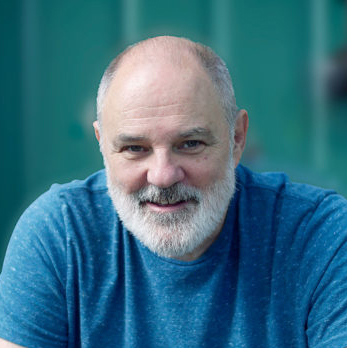What follows is an excerpt from “Writers on Writing: Inside the lives of 55 distinguished writers and editors,” edited by Chip Scanlan

Rosalind Bentley. (Photo: Bita Honarvar)
A native of Florida’s panhandle, Rosalind Bentley is a features/enterprise writer at The Atlanta Journal-Constitution focusing on culture, arts and sometimes food. A graduate of Florida A&M University, she received her MFA in narrative nonfiction from the University of Georgia.
She has covered a variety of stories over the years from the election of Nelson Mandela as South Africa’s first Black president, for which she won first place in editorial writing from the National Women’s Political Caucus, to the role of Black women who fed the civil rights movement.
A two-time James Beard Award finalist, her AJC profile of U.S. Poet Laureate Natasha Trethewey was anthologized in “Best American Newspaper Narratives 2012.” While in Minnesota, she was a finalist for the Pulitzer Prize for a special project on race relations.
What is the most important lesson you’ve learned as a writer?
It’s a tie between “Read, read, read,” and revision is your friend. You have to read the great writers and you have to read the not-so-great ones to learn what’s good and what’s not. This can be tricky because a well-turned phrase can seduce you into believing a piece is better than it is. But over time, you’ll develop a more discerning palate. The lessons from the great writers will find their way into your work: short declarative sentences; end a sentence on a strong word; avoid adverbs.
Revision helps you get there, as does reading your work aloud, but you have to know when to stop. At some point you’ve got to turn the story in.
What has been the biggest surprise of your writing life?
It doesn’t get easier. You stare at the screen. You decide you are, in fact, an imposter. You panic. And then you get on with it.
That said, if I’m really struggling with a piece, in all likelihood I haven’t done enough reporting. Solid reporting is necessary to write with confidence. So, I go back and ask more questions, or I do more research. The stage fright comes when I put too much pressure on myself to make a story “special.” (Imposter alert!) It’s at that point that I pace around the kitchen, make a cup of tea, then go back to the keyboard and write the piece as though I’m telling the story to a friend.
If you had to use a metaphor to describe yourself as a writer, what would it be?
Oooowee. Let’s see. I’m a kid about to jump into a round of double-dutch. I watch the rhythm of the turning ropes, probably too long, then in I jump. My feet pump and pump and pump until I stumble. I step to the side, watch the ropes turn again, pick up the rhythm, then leap. I do this over and over until I feel I can leave the game not with a stumble, but with a backflip where I clear the ropes and land on my feet.
What’s the best piece of writing advice anyone ever gave you?
Boil your story down to a sentence. If you can’t do that, your story is likely to ramble and lose its theme. If possible, boil the story down to a word. Write the sentence or word on a Post-It note and keep it visible until you’re done with the story. That always helps me stay on point.
For your journal
Imposter syndrome is a common disorder among writers who believe they are frauds. Rosalind Bentley often feels like an imposter when she sits down to write. But, as she notes, that usually happens when she hasn’t done enough reporting. In your journal, examine those times when you have felt like an imposter. Dig deep into the reasons why, and if there’s a practical solution, such as more reporting, story structure or character development. Pay attention to those areas. Did the work make you feel less like a fraud?
For Bentley, reading great writers has provided her with important lessons about writing. In your own prose, they’re worth paying attention to and heeding: short declarative sentences; end a sentence on a strong word; avoid adverbs. What effect does reading widely have on your work?
“Writers on Writing: Inside the lives of 55 distinguished writers and editors” is now available on Amazon. Learn more about the book and how it was self-published here.







